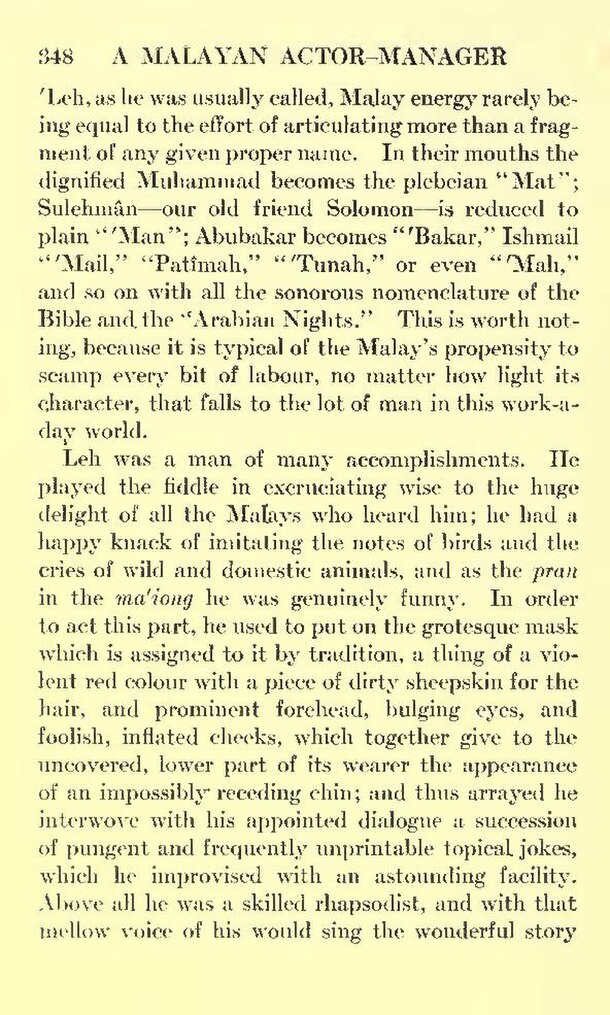'Leh, as he was usually called, Malay energy rarely be- ing equal to the effort of articulating more than a frag- ment of any given proper name. In their mouths the dignified Muhammad becomes the plebeian "Mat"; Sulehman our old friend Solomon is reduced to plain "Man"; Abubakar becomes "Bakar," Ishmail "Mail," "Patimah," ""Tunah," or even "Mali," and so on with all the sonorous nomenclature of the Bible and the Arabian Nights." This is worth not- ing, because it is typical of the Malay's propensity to scamp every bit of labour, no matter how light its character, that falls to the lot of man in this work-a- day world.
Leh was a man of many accomplishments. He played the fiddle in excruciating wise to the huge delight of all the Malays who heard him; he had a happy knack of imitating the notes of birds and the cries of wild and domestic animals, and as the pran in the ma'iong he was genuinely funny. In order to act this part, he used to put on the grotesque mask which is assigned to it by tradition, a thing of a vio- lent red colour with a piece of dirty sheepskin for the hair, and prominent forehead, bulging eyes, and foolish, inflated cheeks, which together give to the uncovered, lower part of its wearer the appearance of an impossibly receding chin; and thus arrayed he interwove with his appointed dialogne a succession of pungent and frequently unprintable topical jokes, which he improvised with an astounding facility. Above all he was a skilled rhapsodist, and with that mellow voice of his would sing the wonderful story
